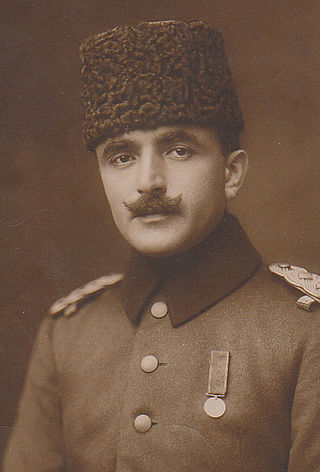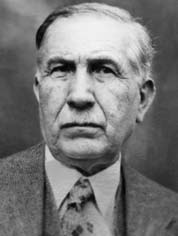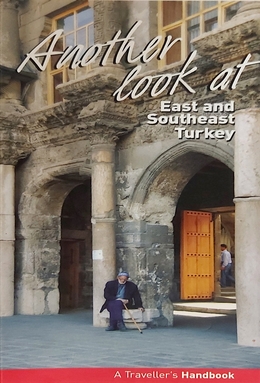Related Research Articles

Kemalism, also known as Atatürkism, or The Six Arrows, is the founding and official ideology of the Republic of Turkey. Kemalism, as it was implemented by Mustafa Kemal Atatürk after the declaration of Republic in 1923, was defined by sweeping political, social, cultural and religious reforms designed to separate the new Turkish state from its Ottoman predecessor and embrace a Western-style modernized lifestyle, including the establishment of secularism/laicism, state support of the sciences, free education, gender equality, economic statism and many more. Most of those policies were first introduced to and implemented in Turkey during Atatürk's presidency through his reforms.

Hüseyin Nihâl Atsız was a prominent Turkish ultranationalist writer, novelist, and poet. Nihâl Atsız self-identified as a racist, Pan-Turkist and Turanist. He later became a critic of Islam, calling it "a religion created by Arabs, for Arabs". He was the author of over 30 books and numerous articles and was in strong opposition to the government of İsmet İnönü, which he criticized for co-operating with the communists. He was accused of being a sympathizer of the Nazi government and plotting to overthrow the Turkish government.
Turkish Left was a weekly nationalist and socialist magazine and the official organ of the Turkish Left group in Turkey. It is the continuation of Yön, an influential political magazine in Turkey in the 1960s. Türk Solu was formed following a split in the Workers' Party (İP). The magazine was led by Gökçe Fırat Çulhaoğlu and was based in Istanbul.

Kurdish culture is a group of distinctive cultural traits practiced by Kurdish people. The Kurdish culture is a legacy from ancient peoples who shaped modern Kurds and their society.

The Turkish Language Association is the regulatory body for the Turkish language, founded on 12 July 1932 by the initiative of Mustafa Kemal Atatürk and headquartered in Ankara, Turkey. The Institution acts as the official authority on the language, contributes to linguistic research on Turkish and other Turkic languages, and is charged with publishing the official dictionary of the language, Güncel Türkçe Sözlük.
Hüseyin Aygün is a Turkish lawyer and politician of Alevi Zaza origin. He is a former Member of the Grand National Assembly of Turkey for the Republican People's Party (CHP) and a founder of the Tunceli Bar Association.

Duran Kalkan, also known as Selahattin Abbas, or Selahattin Erdem is a senior commander of the Kurdistan Workers' Party (PKK).

Place name changes in Turkey have been undertaken, periodically, in bulk from 1913 to the present by successive Turkish governments. Thousands of names within the Turkish Republic or its predecessor the Ottoman Empire have been changed from their popular or historic alternatives in favour of recognizably Turkish names, as part of Turkification policies. The governments have argued that such names are foreign or divisive, while critics of the changes have described them as chauvinistic. Names changed were usually of Armenian, Greek, Georgian, Laz, Bulgarian, Kurdish (Zazaki), Syriac, or Arabic origin.
Mehmet İhsan Arslan is a Turkish businessman and politician of Kurdish origin, a founding member of the deputy for the Justice and Development Party (AKP) and also a former member of the Grand National Assembly of Turkey He was a part-owner of the Zaman newspaper, and in the 1990s was Vice-President of the Islamist human rights organization Mazlum-Der. As such he was involved into the negotiations with the Kurdistan Workers' Party to achieve a release of captive Turkish soldiers and was shortly detained for this. He was elected to the Turkish parliament as a representative of Diyarbakir for the pro-Kurdish Democratic People's Party (DEHAP) in the parliamentarian elections of 2002. He later was involved in the founding of the AKP and in the parliamentary elections in 2007 he was elected as a representative of Diyarbakir. and was denied the chance to run for re-election in 2011 by the AKP, allegedly because of his position on the Kurdish question. He was one of the architects of the AKP policies towards the Kurds, focusing on the bond of the muslim religion between the Kurds and Turks. In an interview he gave to BBC Turkey, he emphasized that the AKP policies towards the Kurds were not constructive and if Turkey wouldn't be able to solve the conflict with the Kurdistan Workers' Party, other countries would step in.
Zaza nationalism is an ideology that supports the preservation of Zaza people between Turks and Kurds in Turkey. The movement also supports the idea that the Zaza people are a different ethnic group from Kurds.

Turkish Hearths is a non-governmental organization (NGO) in Turkey. It was founded in 1912, during the last years of the Ottoman Empire, in a period when almost all non-Turkish elements had their own national committees, and Turkish Hearths was founded as a Turkish national committee.

The Turkish History Thesis is a Turkish ultranationalist, pseudohistoric thesis which posited the belief that the Turks moved from their ancestral homeland in Central Asia and migrated to China, India, the Balkans, the Middle East, and Northern Africa in several waves, populating the areas which they had moved to and bringing civilization to their native inhabitants. The theory was developed within the context of pre-Nazi scientific racism, classifying the Turks as an "Alpine subgroup" of the Caucasian race. The intent of the theory was a rejection of Western European assertions that the Turks belonged to the "yellow or mongol" race. Mustafa Kemal Atatürk took a personal interest in the subject after he was shown a French language book that claimed Turks "belonged to the yellow race" and were a "secondaire" people.
Haki Karer was a Turkish leftist activist and is a central figure in the memory of the PKK.
Kurdology or Kurdish studies is an academic discipline centered on the study of Kurds and consists of several disciplines such as culture, history and linguistics. Kurdish studies traces its institutional history to 1916, when in St. Petersburg in the late Russian Empire, during World War I, Kurdish was first taught as a university course by Joseph Orbeli.

Secession in Turkey is a phenomenon caused by the desire of a number of minorities living in Turkey to secede and form independent national states.
Roger Lescot (1914–1975) was a French orientalist and diplomat known for his research of the Kurdish language.
The denial of Kurds was the official state policy of Turkey for several decades, which denied that Kurds constitute an own ethnic group and alleged that they instead are a subgroup of Turks and the words 'Kurd' and 'Kurdistan' were omitted by state institutions. During the 20th century, Kurds were referred to as Mountain Turks, with the state prohibiting the use of the terms Kurd or Kurdish.

Ahmet Cevat Emre (1876–1961) was a Turkish journalist and linguist. He was a member of the Turkish Language Association (TDK) and involved in the latinization of the Turkish alphabet. He also served as a deputy for Çanakkale in the Grand National Assembly of Turkey.
Mehmet Şerif Fırat was a Kurdish author and is known for his 1945 book History of Varto and the Eastern Provinces in which he denied the existence of Kurds and claimed they are of Turkish origin. The book was republished in 1961 and counted with a foreword from the Turkish president Cemal Gürsel.

The book Another Look at North Kurdistan - A traveller's Handbook is coordinated by Kameel Ahmady, an anthropologist and British Iranian researcher, and was published in Turkey in 2009. This book was researched and written based on the observations of the Kurdish author of Iranian origin along with his other colleagues from these Kurdish regions of Turkey. This book is the result of one of the first researches that the author has done during his research activities.
References
- 1 2 3 Scalbert-Yücel, Clémence; Ray, Marie Le (2006-12-31). "Knowledge, ideology and power. Deconstructing Kurdish Studies". European Journal of Turkish Studies. Social Sciences on Contemporary Turkey (5). doi: 10.4000/ejts.777 . hdl: 10036/37913 . ISSN 1773-0546.
- 1 2 3 4 5 6 7 8 9 10 11 12 Aytürk, İlker (2017-11-08). "The Flagship Institution of Cold War Turcology". European Journal of Turkish Studies. Social Sciences on Contemporary Turkey (24). doi: 10.4000/ejts.5517 . ISSN 1773-0546.
- ↑ Berezhnaya, Dr Liliya; Hein-Kircher, Heidi (2019-03-11). Rampart Nations: Bulwark Myths of East European Multiconfessional Societies in the Age of Nationalism. Berghahn Books. ISBN 978-1-78920-148-2.
- 1 2 3 4 5 Key, Kerim K. (1967). "The Publications and Activities of the Institute for the Study of Turkish Culture". Middle East Journal. 21 (1): 108–109. ISSN 0026-3141. JSTOR 4324096.
- ↑ Sagnic, Ceng (July 2010). "Mountain Turks: state ideology and the Kurds in Turkey". Information, Society and Justice. 3 (2): 127–134.